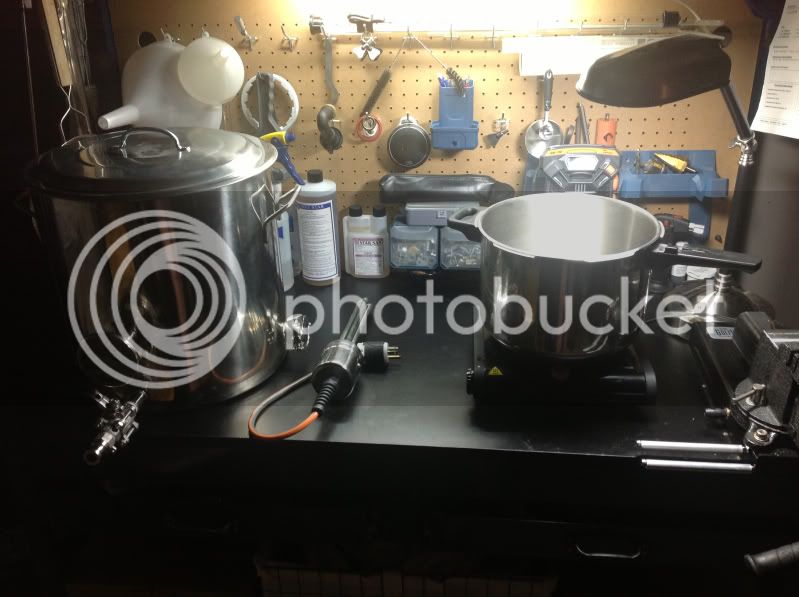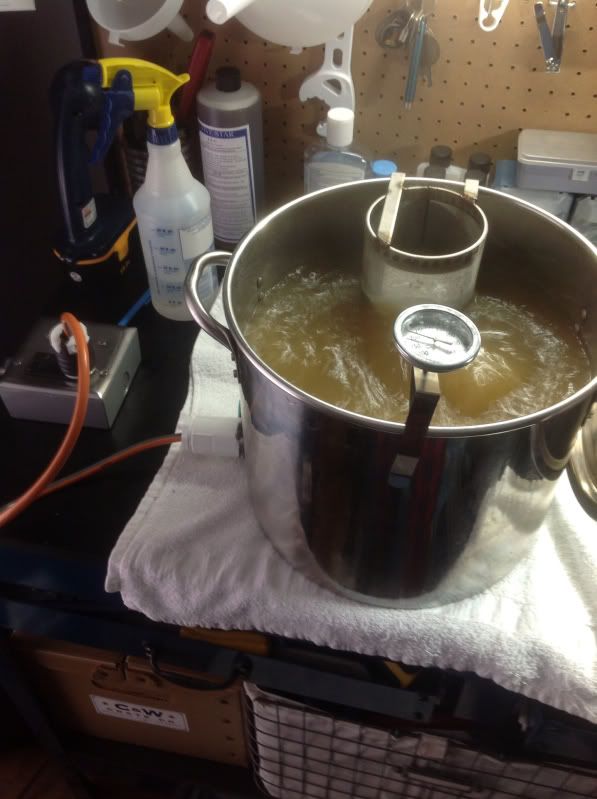I did AE for the first couple years of brewing. I've done some 10 partial mashes now. As to the question of a small mash with a lil bit of base malt,I've done that. I did my dark hybrid lager with 13.25ozs of grains in about 1/2 gallon of water @ 152F for an hour. Sparged with a little over a gallon of 170F water. As I remember it was about 3 gallons boil volume.
I had odd amounts of Munton's plain DME left,so 1lb plain extra light & 1/2lb plain light DME's into the boil for the flavor hop additions. At flame out,I added 1lb Munton's plain amber DME (my lhbs was out of my usual DME's in usual sizes). And the kicker? 1 can Thomas Cooper's Heritage Lager! Their most expensive can at $25.
Pitched one vial of WL029 kolsh yeast into the OG1.046 wort. With the grains also providing some color besides flavors & freshness to this odd assemblage of ingredients. So being mostly extracts,& having to compromise on the DME,it came out very well. Here it is;
http://[URL=http://s563.photobucket.com/user/unionrdr/media/PICT0001-2_zps4b72f12c.jpg.html]
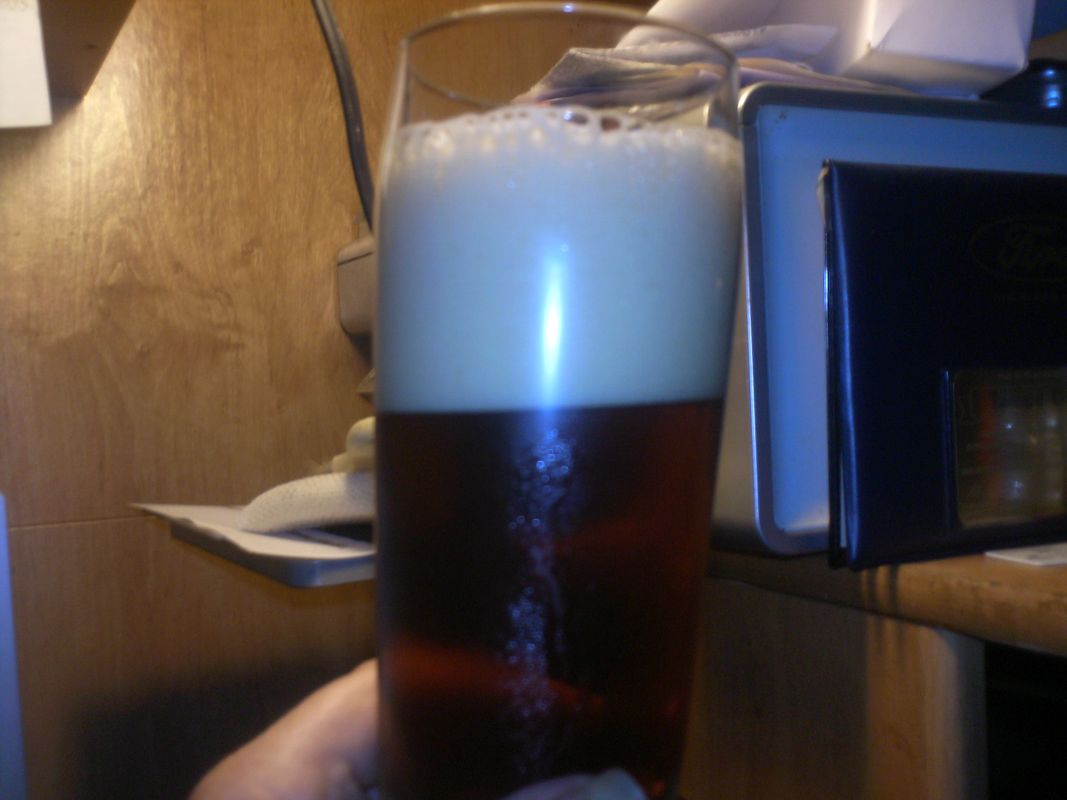
[/URL]
So a small partial mash isn't much different than steeping,save for more accurate temp & water amount. Getting used to doing that whether steeping or mashing will develope some good process habits that'll always come in handy. I've also done AE IPA's with a Cooper's can,some plain DME & hops. Here's my 1st IPA BuckIPA,an AE 6G batch;
http://[URL=http://s563.photobucket.com/user/unionrdr/media/IPA3.jpg.html]
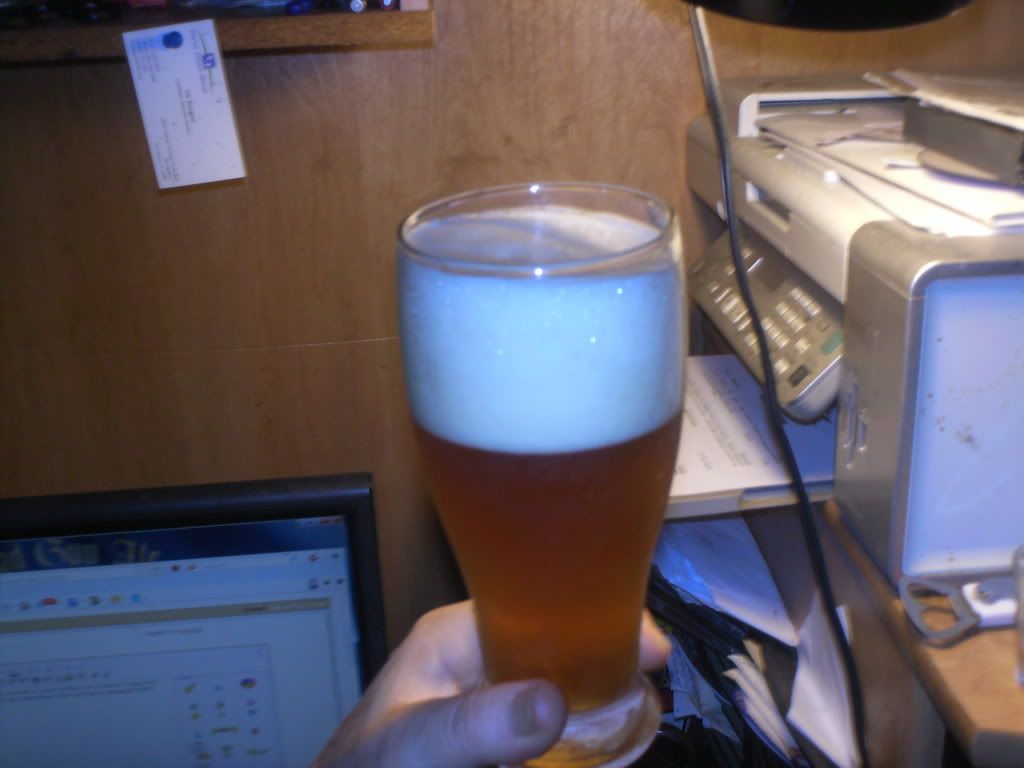
[/URL]
Just a Cooper's can,3lbs of Muntons plain light,or extra light DME usually,& the right kind & amount of hops. Although when I brew'em again,I'll add a lil tiny bit of bittering to augment the Cooper's bittering amount.
There are so many different extracts out their now compared to when I got into beer brewing a couple years ago,it's astounding. You can do some great AE beers without grains now,what with munich,vienna,marris otter & the like being available in extract form now. Toss in some quality liquid yeast like I did/do, & you'll be amazed at how different & good that simple recipe can be.
I even did an AE Burton Ale,but it's getting upgraded too. And it def wasn't cheap;
http://[URL=http://s563.photobucket.com/user/unionrdr/media/PICT0006-2.jpg.html]
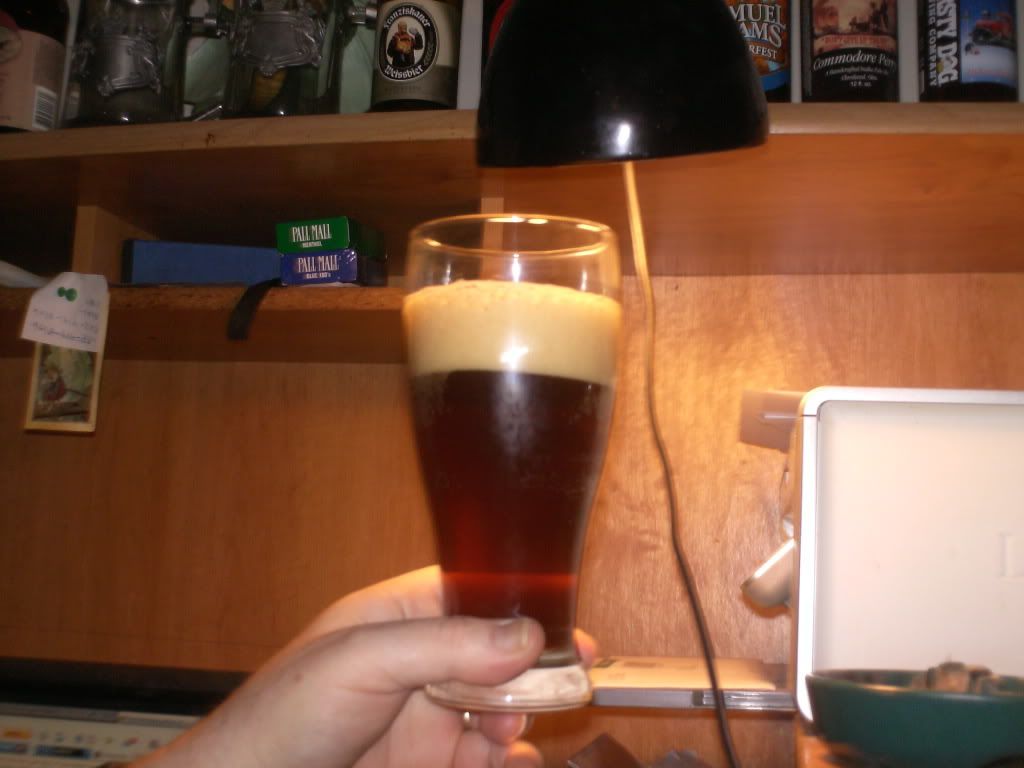
[/URL]
It used 2 Cooper's cans,3lbs of Munton's plain light DME,& 3oz of hops. Def needs to at least double the hops. To all that malt,I'm going to add about a 6lb PM to get more of the flavors their original 2-3 hour boils used to get. Should be a beast. Out of all this,I have no desire to go all grain. I love playing with extracts & grains. All partial boils in the same 5 gallon (20QT) SS stock pot I started with. I just put a cake cooling rack in the bottom of the kettle to keep the 5G nylon paint strainer bag from burning/melting on the bottom. Makes steeping or mashing more efficient,since the grains can be stirred to break up dough balls & evenly wet them. & I wrap the BK/MT in my winter hunting coat to maintain mash temp. It even goes up 1 degree over the course of an hour with all the steam in the dead space.
So my whole point is,there's a ton you can do with partial boil,extracts & grains available nowadays. Just read what which one contributes to color,flavor & aroma,how much gives what,etc. That'll give you plenty to imagineer without AG or full boils. they're nice,but not absolutely needed. Being Sunday,this sermon is ended,go in peace!







